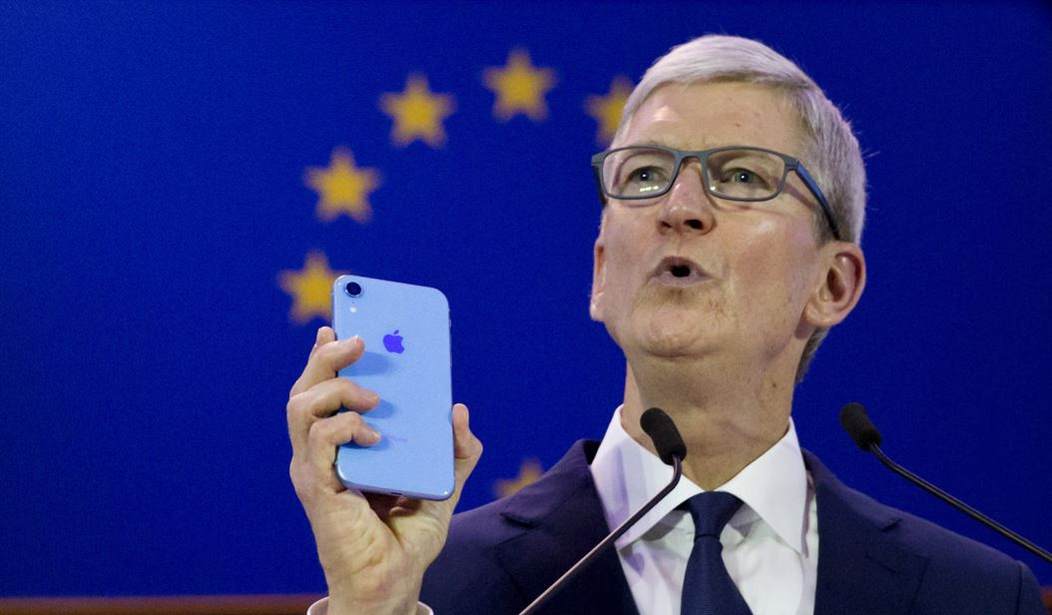A good idea. A long overdue good idea, at that. But even then, Apple apparently can’t entirely quit China as a supplier — or more accurately, a supply management resource.
But at least it’s a start … perhaps:
In recent weeks, Apple Inc. has accelerated plans to shift some of its production outside China, long the dominant country in the supply chain that built the world’s most valuable company, say people involved in the discussions. It is telling suppliers to plan more actively for assembling Apple products elsewhere in Asia, particularly India and Vietnam, they say, and looking to reduce dependence on Taiwanese assemblers led by Foxconn Technology Group.
Turmoil at a place called iPhone City helped propel Apple’s shift. At the giant city-within-a-city in Zhengzhou, China, as many as 300,000 workers work at a factory run by Foxconn to make iPhones and other Apple products. At one point, it alone made about 85% of the Pro lineup of iPhones, according to market-research firm Counterpoint Research.
The Zhengzhou factory was convulsed in late November by violent protests. In videos posted online, workers upset about wages and Covid-19 restrictions could be seen throwing items and shouting “Stand up for your rights!” Riot police were present, the videos show. The location of one of the videos was verified by the news agency and video-verification service Storyful. The Wall Street Journal corroborated events shown in the videos with workers at the site.
Coming after a year of events that weakened China’s status as a stable manufacturing center, the upheaval means Apple no longer feels comfortable having so much of its business tied up in one place, according to analysts and people in the Apple supply chain.
So far, let’s hear the sound of one hand clapping. Even before the zero-COVID policies of Xi Jinping turned China into a prison camp, plenty of evidence of worker exploitation and outright genocide existed. Apple is far from the only American company to continue doing business with China despite its well-documented human rights abuses, but it is among the most visible and most collaborative in the group.
For instance, even as Apple’s corporate beancounters began to realize the costs of these supply-chain shocks, they busied themselves by cutting off Apple sharing apps to the protesters. Their AirDrop app helped facilitate grassroots protest organization in Hong Kong three years ago, but it mysteriously disappeared from Apple’s operating system in its most recent update — and only in China:
AirDrop, which allows users to share content between Apple devices, has become an important tool in protestors’ efforts to circumvent authoritarian censorship regimes over recent years.
That is because it relies on wireless connections between phones, rather than internet connectivity, placing it beyond the scope of internet content moderators. It uses Bluetooth to form a peer-to-peer Wi-Fi network between two devices. …
However, it was limited earlier this month, when a Nov. 9 update to Apple’s global operating system, iOS 16.1.1, included an additional AirDrop feature applying only to iPhones sold in mainland China.
Under the update, iPhones can now only set their AirDrop to receive messages from “everyone” for 10 minutes before switching off. The other settings allow for file-sharing between “contacts only” or “receiving off.”
Apple did not immediately respond to a CNBC request for comment. In an online statement, the company said the software update includes “bug fixes and security updates and is recommended for all users.”
In other words, Apple’s main concern isn’t their workers but only their output. Their new strategy involves finding new workers in other countries, but largely sticking with the supply management run by the Xi regime. The WSJ’s analysis suggests that Apple has little recourse due to a lack of options for the higher-level supply chain tasks:
One response, say the people involved in Apple’s supply chain, is to draw from a bigger pool of assemblers—even if those companies are themselves based in China. Two Chinese companies that are in line to get more Apple business, they say, are Luxshare Precision Industry Co. and Wingtech Technology Co.
On calls with investors earlier this year, Luxshare executives said some consumer-electronics clients, which they didn’t name, were worried about Chinese supply-chain snafus caused by Covid-prevention measures, power shortages and other issues. They said these clients wanted Luxshare to help them do more work outside China.
If that seems backwards to readers, it’s understandable. Apple will stick with the CCP-linked firms running their business in the region while the CCP’s dictatorial policies make prisoners out of Apple’s former workers. These firms don’t exist without integration into the Xi regime, after all. It’s the worst of all worlds in terms of corporate behavior.
Why not just pull out entirely? The WSJ reports that smaller countries in the region don’t have the necessary scale to produce Apple products to meet demand. India has the population but won’t provide Apple with the requisite level of, ahem, “governmental coordination.” Not one mention is made, of course, about the prospect for reshoring such operations in the US, which would be more costly but also infinitely more reliable than China has been — and less problematic in terms of human rights to boot. Plus, it would generate income for the market to which Apple sells its products.
About the only real progress suggested in this article is that it might accelerate the crisis in Beijing. If hundreds of thousands of workers suddenly lose their jobs in the middle of Xi’s zero-COVID nightmare, it will further destabilize the regime and give those workers plenty of time for even more agitation. Otherwise, though, this is about as cynical as corporate America gets.







Join the conversation as a VIP Member